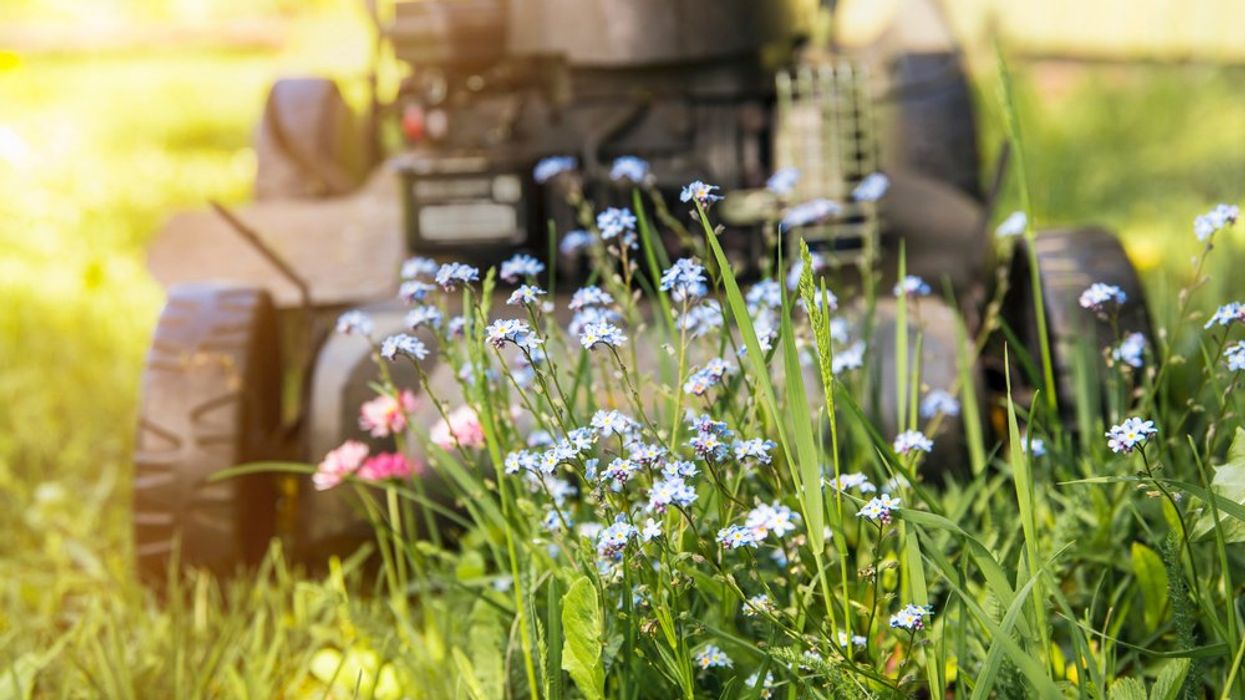A growing "No Mow" movement is encouraging homeowners to forgo taking care of their lawns in the traditional way, and to instead adopt practices that would save resources and crucial pollinator habitat, as well as their own time and energy.
Susan Carpenter, native plant garden curator at the University of Wisconsin-Madison Arboretum, told The Washington Post that the first step is to let your grass grow a little. While "letting the grass grow to a foot tall [has] no value whatsoever," letting grass grow to about six inches, then cutting it down to four, is ideal.
Carpenter suggests cutting grass every two weeks, as longer grass develops deeper roots, and becomes more resistant to droughts. Lawnmowers also often cut the heads off flowers, preventing pollinators from feeding and nesting.
Melinda Whicher, a supervisory horticulturalist at the Smithsonian Gardens, added that "there are plenty of very low-growing flowers where you can still mow and the flowers will still be there." Better yet, it is possible to shift away from turf lawns altogether, and grow plant species native to your area instead.
Lawns with native biodiversity require much lower maintenance, as they do not need chemical treatment to thrive. In fact, Carpenter proposes doing away with chemical sprays altogether, as they are detrimental to both native plants and pollinators.
While all of these changes benefit the environment, they can also save time and energy. Mowing less frequently also cuts back on greenhouse gas emissions, as most mowers are powered by natural gas.
Despite the benefits, many Americans are reluctant to give up their picturesque, perfectly curated lawns. Experts hope that movements such as "No Mow" will help begin a conversation around biodiversity and resource usage.
“At the end of the day, what we really need is to change the American mind-set about having a perfect lawn,” Whicher said. “and that’s tough to do.”



















































